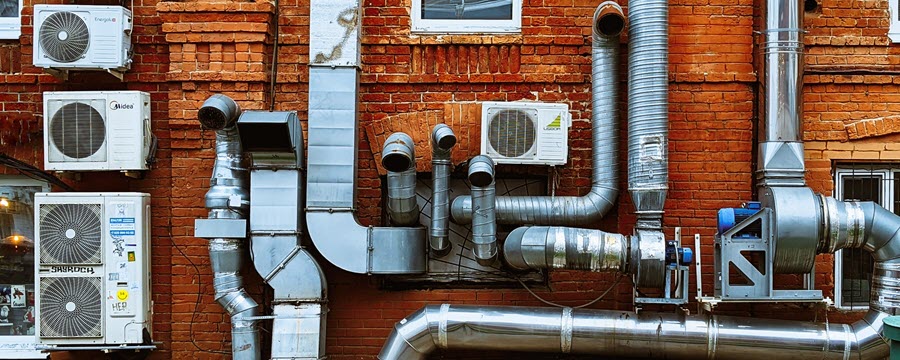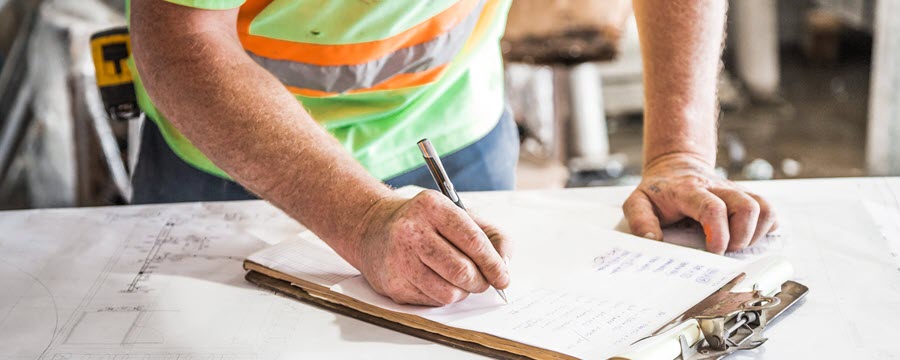
Ventilation Strategies for Occupational Health & Safety

In commercial and public-sector buildings, property managers must maintain proper ventilation for the health and safety of occupants. The concept of ventilation was often discussed in light of the COVID-19 pandemic, but good ventilation can be beneficial aside from preventing the spread of the coronavirus.
Below, learn about the benefits of adequate building ventilation and a handful of strategies to improve it.
Benefits of Good Ventilation
There are various indoor pollutants and other sources of indoor air pollution in most buildings. Indoor air pollutants – including asbestos, carbon monoxide (CO), radon and volatile organic compounds (VOCs) – can have short- and long-term health effects on building occupants.
Indoor pollution sources, which release particles or gases into the air, and improper ventilation are the two primary causes of IAQ problems. Inadequate airflow can increase indoor pollutant levels because there’s a lack of outdoor air filtering to dilute the emissions from these pollutant sources.
Here are some reasons adequate ventilation in buildings is beneficial:
- Reduces indoor air pollutants
- Makes a building more comfortable
- Can improve employee productivity
- Controls unwanted odors
- Gets rid of building moisture and contamination
- Maintains a healthy indoor environment
Proper ventilation is critical to maintaining occupational health and safety. However, building managers may find it challenging to improve and maintain good ventilation.
5 Strategies to Improve Building Ventilation
1. Keep Systems Running for Longer Periods
Running HVAC systems for longer hours can improve ventilation because it enhances the air exchanges within a building. Additionally, if a system is always on, it consistently provides cleaner air because of the continuous air filtration.
One drawback of keeping an HVAC system running is that it will likely increase a building’s energy usage, making the monthly energy bill more expensive. Ensure the settings on the HVAC system are set to maximize the amount of outdoor air pulled into the system.
Running HVAC systems for longer hours improves indoor air quality by increasing air exchanges and continuous air filtration.
Be sure to post notices like this so well-meaning people don’t turn off your system.
2. Install Air Cleaners or Filters in Small Areas
While the Occupational Safety and Health Administration (OSHA) has no formal IAQ standards, the organization recommends businesses consider installing air cleaners or filters, especially if the business works with equipment that releases ozone or other indoor air contaminants.
Air cleaners and filters are best used in small, confined building spaces. For example, a room with printers or copiers or a doorway between manufacturing spaces and office spaces may require these cleaners or filters to improve ventilation.
3. Check HVAC Systems Regularly and Perform Preventive Maintenance
While this strategy may seem like a no-brainer, failure to perform these inspections and preventive maintenance – including regular filter changes – can lead to poor ventilation, which negatively affects IAQ in a building. A poorly maintained or outdated HVAC system will not help improve IAQ.
Building managers with HVAC experience may perform checks themselves, but others may need to hire a qualified HVAC professional to get the job done.
4. Add Portable HEPA Filters
Another strategy to improve ventilation is to invest in portable HEPA filters. Combining a stand-alone high-efficiency particulate air (HEPA) filter with a well-maintained HVAC system can improve air quality.
According to the EPA, portable HEPA filters can theoretically remove 99.97% of mold, bacteria, dust, pollen, and other airborne particles that could be reducing IAQ. However, it’s important to note that these filters must be cleaned and replaced from time to time to function properly. Additionally, while these filters may improve IAQ, they are not meant to replace other ventilation strategies.
5. Consider Natural Ventilation
Finally, building managers can use natural ventilation to improve IAQ. Outdoor air will naturally help ventilate a building by entering or leaving through open windows. Natural ventilation can also reduce energy consumption, which may be a priority for companies looking to cut costs on building expenses. Building ventilation is critical to maintaining occupant comfort, health and safety.
Prioritize Proper Ventilation Using These Strategies
While it’s commonly understood that outdoor air pollution is a significant environmental issue, the topic of poor indoor air quality (IAQ) is not as often discussed. As current and new health challenges continue, it’s important to ensure buildings are properly ventilated to reduce the risk of viral particles spreading. Consider using the strategies outlined above to improve ventilation in your building.
About the Author:
Evelyn Long is the editor-in-chief of Renovated, a web magazine for real estate and construction professionals.

